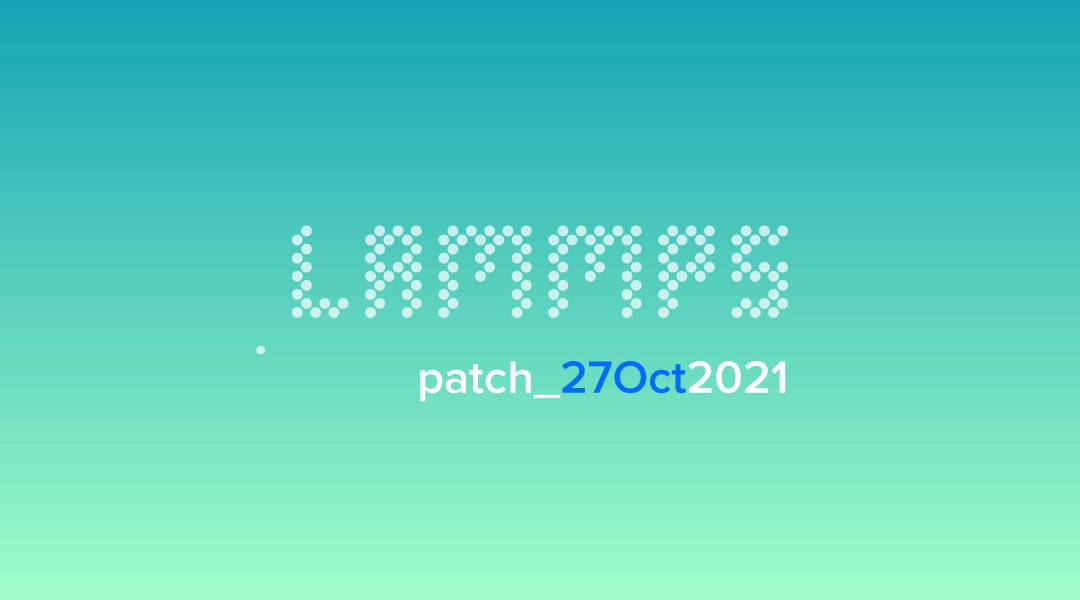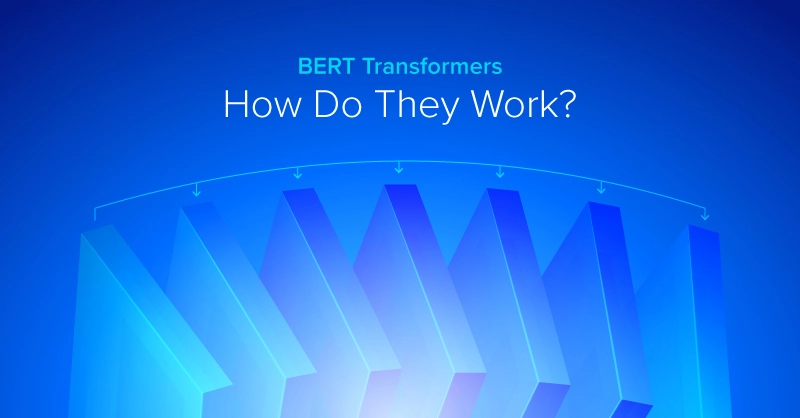
LAMMPS Patch Release Overview
What is LAMMPS used for?
LAMMPS is a classical molecular dynamics (MD) code that models ensembles of particles in a liquid, solid, or gaseous state. It can model atomic, polymeric, biological, solid-state (metals, ceramics, oxides), granular, coarse-grained, or macroscopic systems using a variety of interatomic potentials (force fields) and boundary conditions. It can model 2D or 3D systems with only a few particles up to millions or billions.
LAMMPS can run on single processor laptops or desktops, but is designed for parallel computers using message-passing techniques and a spatial-decomposition of the simulation domain. This includes shared-memory boxes and distributed-memory clusters and supercomputers. Many of its models have versions that provide accelerated performance on CPUs, GPUs, and Intel Xeon Phis. The code is designed to be easy to modify or extend with new functionality.
Interested in getting faster results?
Learn more about LAMMPS Certified GPU Workstations and Servers starting at $4,300
Important note about branch names
The LAMMPS project has changed the names of its main branches in the git repository to better represent the state of the code. The master branch was renamed to develop and the unstable branch became release. If you are following the git repository to obtain the LAMMPS source code, please update your checkouts and forks accordingly. For a limited time the master and unstable branches will be kept in sync with develop and release (through fast forwarding), but those branches will be removed eventually and then you will be required to use the new branch names or not have access to updates anymore.
Changes since the 29 September 2021 patch release:
- New
fix acks2/reaxfffor ACKS2 charge equilibration and updates tofix qeq/reaxffthat add support for fix efield to both charge equilibration methods. (Metin Aktulga, MSU and Stan Moore, SNL) PR #2931 - New
fix mol/swapfor swapping of atom types within a single, randomly selected molecule (Steve Plimpton, SNL) PR #2992 - Add support for multi-species potentials to ML-PACE package (Yury Lysogorskiy and the PACE library developers) PR #2968
- Preliminary support for OpenMPTarget in KOKKOS package (Rahul Gayatri, NERSC, Chris Knight, ANL, Stan Moore, SNL) PR #2997
- Implemented and applied a new namespace
platformwith abstractions of functionality that has either different behavior or uses different APIs on different platforms and operating systems. This reduces code redundancy and enhances platform neutrality of the core LAMMPS code. (Axel Kohlmeyer, Temple U) PR #2979 - Implemented and applied a utility function to parse boolean arguments to keywords (yes/no, on/off, true/false) (Axel Kohlmeyer, Temple U), PR #2951
- Semi-automatic code refactoring using clang-tidy. See issue #2946 for a discussion of individual changes. (Axel Kohlmeyer, Temple U) PR #2990, PR #2994, PR #3002
- Many small bug fixes, minor code improvements, and coding style, build system, documentation, formatting updates (multiple authors) PR #2973, PR #2975, PR #2976, PR #2977, PR #2983, PR #2985, PR #2989, PR #2991, PR #2993, PR #2998, PR #3003, PR #3004, PR #3007 , PR #3009
Backward compatibility notices:
- Most keywords that accept "yes/no" or "on/off" parameters will now accept "yes/no", "on/off", or "true/false" as valid arguments. This is not (yet) reflected in the manual. Some cases where there are more than just two choices have been adapted accordingly, but not all. Backward compatibility is retained. All tests pass.
This release has 2 assets:
- Source code (zip)
- Source code (tar.gz)
Visit the release page to download them.
About LAMMPS
LAMMPS (Large-scale Atomic/Molecular Massively Parallel Simulator) a classical molecular dynamics simulation code designed to run efficiently on parallel computers. It was developed at Sandia National Laboratories, a US Department of Energy facility, with funding from the DOE. It is an open-source code, distributed freely under the terms of the GNU Public License (GPL).
Have any questions about LAMMPS or other applications for molecular dynamics? Contact Exxact Today

LAMMPS Patch Release 27 October 2021
LAMMPS Patch Release Overview
What is LAMMPS used for?
LAMMPS is a classical molecular dynamics (MD) code that models ensembles of particles in a liquid, solid, or gaseous state. It can model atomic, polymeric, biological, solid-state (metals, ceramics, oxides), granular, coarse-grained, or macroscopic systems using a variety of interatomic potentials (force fields) and boundary conditions. It can model 2D or 3D systems with only a few particles up to millions or billions.
LAMMPS can run on single processor laptops or desktops, but is designed for parallel computers using message-passing techniques and a spatial-decomposition of the simulation domain. This includes shared-memory boxes and distributed-memory clusters and supercomputers. Many of its models have versions that provide accelerated performance on CPUs, GPUs, and Intel Xeon Phis. The code is designed to be easy to modify or extend with new functionality.
Interested in getting faster results?
Learn more about LAMMPS Certified GPU Workstations and Servers starting at $4,300
Important note about branch names
The LAMMPS project has changed the names of its main branches in the git repository to better represent the state of the code. The master branch was renamed to develop and the unstable branch became release. If you are following the git repository to obtain the LAMMPS source code, please update your checkouts and forks accordingly. For a limited time the master and unstable branches will be kept in sync with develop and release (through fast forwarding), but those branches will be removed eventually and then you will be required to use the new branch names or not have access to updates anymore.
Changes since the 29 September 2021 patch release:
- New
fix acks2/reaxfffor ACKS2 charge equilibration and updates tofix qeq/reaxffthat add support for fix efield to both charge equilibration methods. (Metin Aktulga, MSU and Stan Moore, SNL) PR #2931 - New
fix mol/swapfor swapping of atom types within a single, randomly selected molecule (Steve Plimpton, SNL) PR #2992 - Add support for multi-species potentials to ML-PACE package (Yury Lysogorskiy and the PACE library developers) PR #2968
- Preliminary support for OpenMPTarget in KOKKOS package (Rahul Gayatri, NERSC, Chris Knight, ANL, Stan Moore, SNL) PR #2997
- Implemented and applied a new namespace
platformwith abstractions of functionality that has either different behavior or uses different APIs on different platforms and operating systems. This reduces code redundancy and enhances platform neutrality of the core LAMMPS code. (Axel Kohlmeyer, Temple U) PR #2979 - Implemented and applied a utility function to parse boolean arguments to keywords (yes/no, on/off, true/false) (Axel Kohlmeyer, Temple U), PR #2951
- Semi-automatic code refactoring using clang-tidy. See issue #2946 for a discussion of individual changes. (Axel Kohlmeyer, Temple U) PR #2990, PR #2994, PR #3002
- Many small bug fixes, minor code improvements, and coding style, build system, documentation, formatting updates (multiple authors) PR #2973, PR #2975, PR #2976, PR #2977, PR #2983, PR #2985, PR #2989, PR #2991, PR #2993, PR #2998, PR #3003, PR #3004, PR #3007 , PR #3009
Backward compatibility notices:
- Most keywords that accept "yes/no" or "on/off" parameters will now accept "yes/no", "on/off", or "true/false" as valid arguments. This is not (yet) reflected in the manual. Some cases where there are more than just two choices have been adapted accordingly, but not all. Backward compatibility is retained. All tests pass.
This release has 2 assets:
- Source code (zip)
- Source code (tar.gz)
Visit the release page to download them.
About LAMMPS
LAMMPS (Large-scale Atomic/Molecular Massively Parallel Simulator) a classical molecular dynamics simulation code designed to run efficiently on parallel computers. It was developed at Sandia National Laboratories, a US Department of Energy facility, with funding from the DOE. It is an open-source code, distributed freely under the terms of the GNU Public License (GPL).
Have any questions about LAMMPS or other applications for molecular dynamics? Contact Exxact Today




.jpg?format=webp)